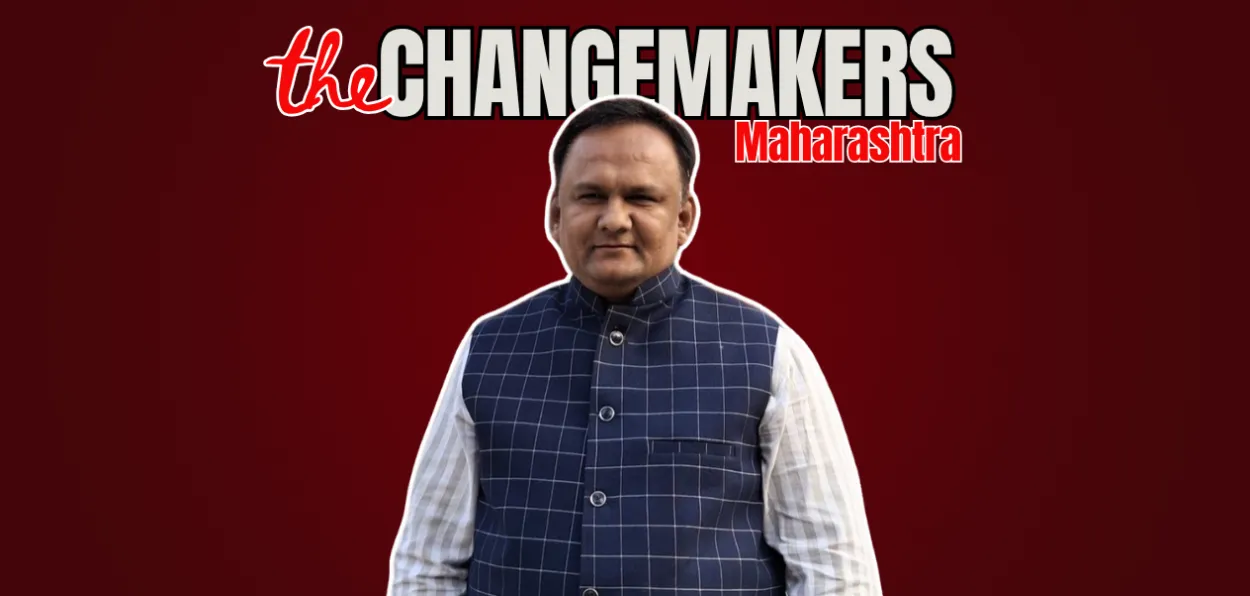
Sameer Shaikh
Sarfaraz Ahmad from Solapur, Maharashtra, is reviving cultural awareness among Muslims in the region. His work is important in a state where historical and cultural narratives are often skewed or forgotten.
Sarfaraz is a quiet revolution — one rooted in education, research, and identity.
For decades, the discourse around India's social and cultural issues has been overwhelmingly North India-centric.
The rich Muslim heritage of South India, particularly the Deccan region, has received scant attention in mainstream narratives.
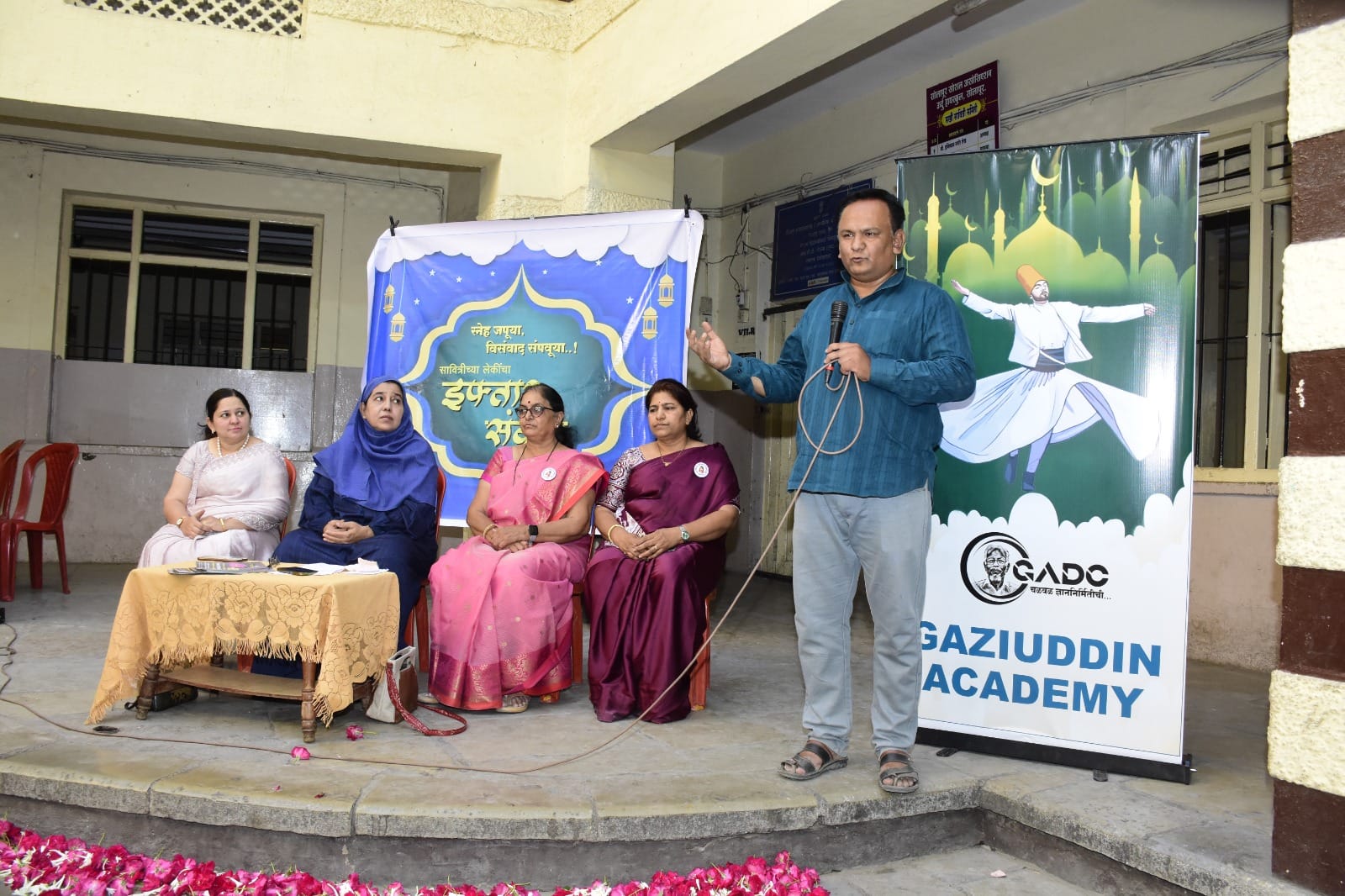 Sarfaraz Ahmad speaking at a function
Sarfaraz Ahmad speaking at a function
As a result, many Deccani Muslims feel culturally adrift, lacking not only a clear sense of historical identity but also struggling with social and political disconnection.
This deep-rooted issue is something Sarfaraz has been working to address for over a decade. Once involved in political activism, he found himself grappling with fundamental questions: How culturally self-aware are Indian Muslims? Are they equipped with the political maturity to shape their own narrative? Have they ever truly sought to define their identity — culturally, socially, and intellectually?
Speaking to Awaz- The Voice, Sarfaraz explains, "After independence, when we start turning the pages of history to examine the cultural space of Muslims, we find an alarming void filled with confusion, ignorance, values based on misinformation, and a mentality of dependence."
He traces this crisis back to the lack of cultural education among Indian Muslims. Determined to fill this gap, Sarfaraz began studying history with a small group of like-minded friends. In 2005, under the guidance of Advocate Sayyed Shah Gaziuddin, he co-founded the Idara Barae Mutalia Tahqeeq wa Tarikh-e-Dakan — a research center dedicated to unearthing the forgotten contributions of Muslims to Deccani culture.
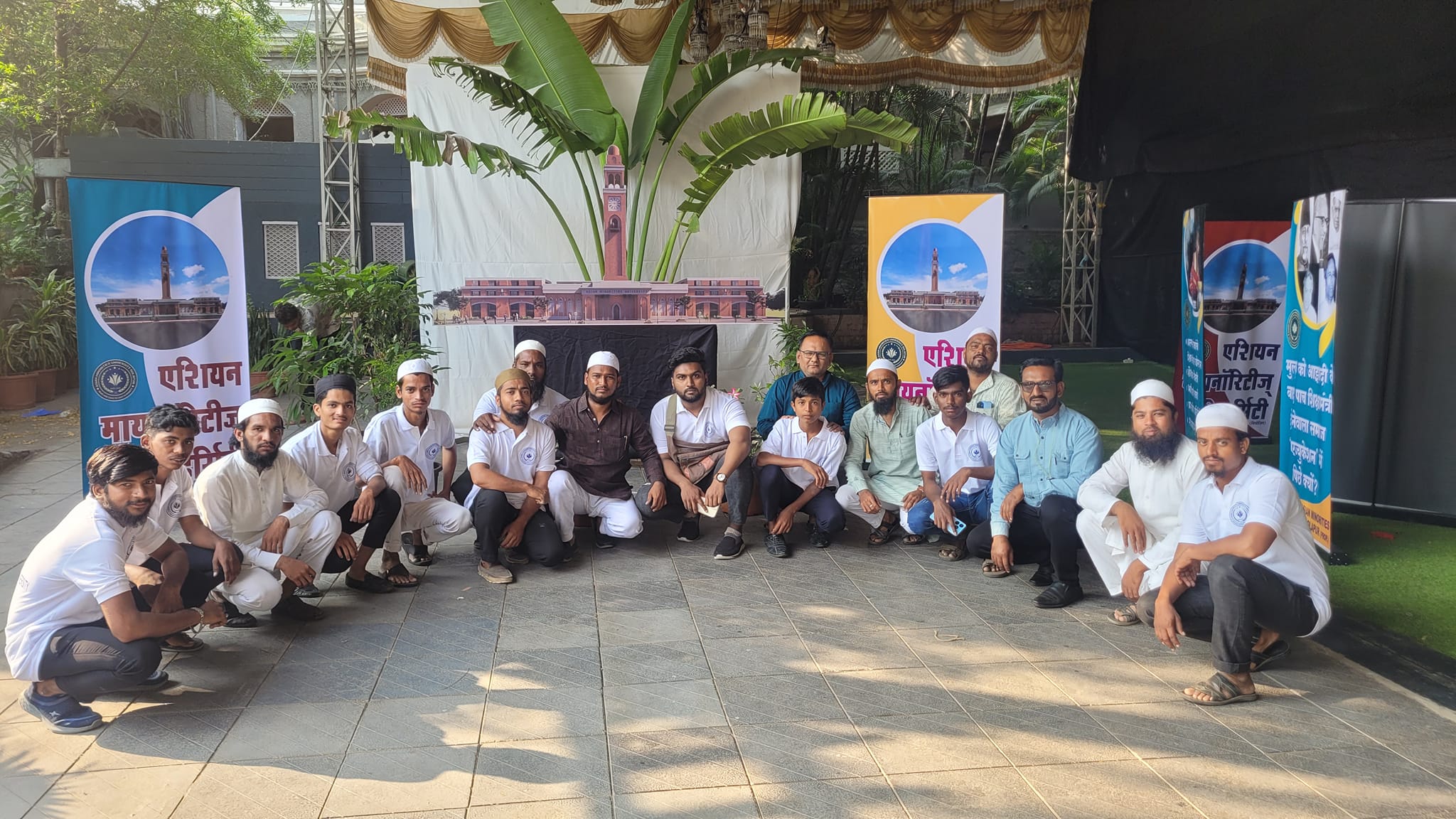 Sarfaraz Ahmad with his team of volunteers
Sarfaraz Ahmad with his team of volunteers
This initiative marked the beginning of Sarfaraz’s academic journey. He pursued postgraduate studies in history and began writing prolifically.
“After the British dismantled major Muslim dynasties in the North, many scholars and feudal elites migrated to the Deccan and rose to prominence under the Asifjahi rule,” he says. “But this overshadowed the native Deccani identity. The Deccan, its language, and its people were pushed to the margins — politically and culturally.”
This imbalance, he argues, persists even today. “The Daccani Muslims’ religious and cultural spaces are dominated by North Indian leaders. Worse, the communal tensions of North India have become an imposed reality for Muslims in the South. To counter this, he feels there is a need for distinct cultural politics rooted in the Deccan’s unique heritage.”
Sarfaraz’s breakthrough moment came with the publication of Saltanat-e-Khudadaad, the first scholarly Marathi work on Tipu Sultan. By presenting Tipu not merely as a religious figure but as a visionary administrator and reformer, Sarfaraz offered a fresh historical lens — one that deeply resonated with Deccani Muslim youth seeking direction.
The book sparked significant interest among Maharashtrian scholars and was hailed as a landmark contribution to regional historiography.
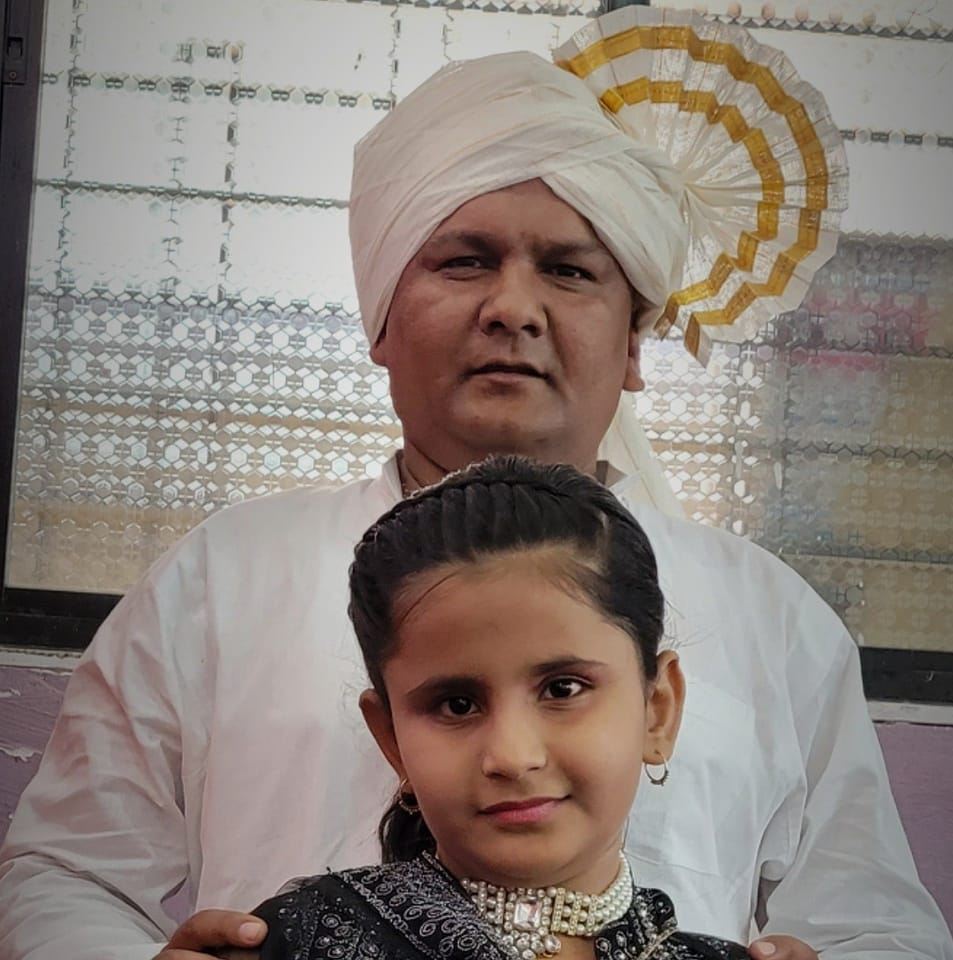 Sarfaraz Ahmad with his daughter
Sarfaraz Ahmad with his daughter
Since then, Sarfaraz has authored books like Bhartiya Itihas Lekhan ani Viparyas (Indian Historiography and Distortion), Tipu Sultan: Patrasar Sangrah (Collection of Letters), Rashtravad ani Bhartiya Musalman (Nationalism and Indian Muslims), and Asifjahi — all in Marathi. These works have not only awakened a sense of historical identity among Indian Muslims but have also offered the broader Hindu community a more nuanced view of Islam.
Sarfaraz is clear about his mission: “I want to awaken cultural discernment in my community. Political wisdom will follow naturally from that. Only through cultural understanding can real empowerment begin.”
Through research, writing, and educational initiatives, Sarfaraz aims to create knowledge spaces where Muslims can reclaim their cultural legacy.
Drawing on thinkers like Gramsci and Ibn Khaldun, Sarfaraz warns of the dangers of cultural subjugation. “Without cultural education, a society is destined for political and social enslavement,” he asserts.
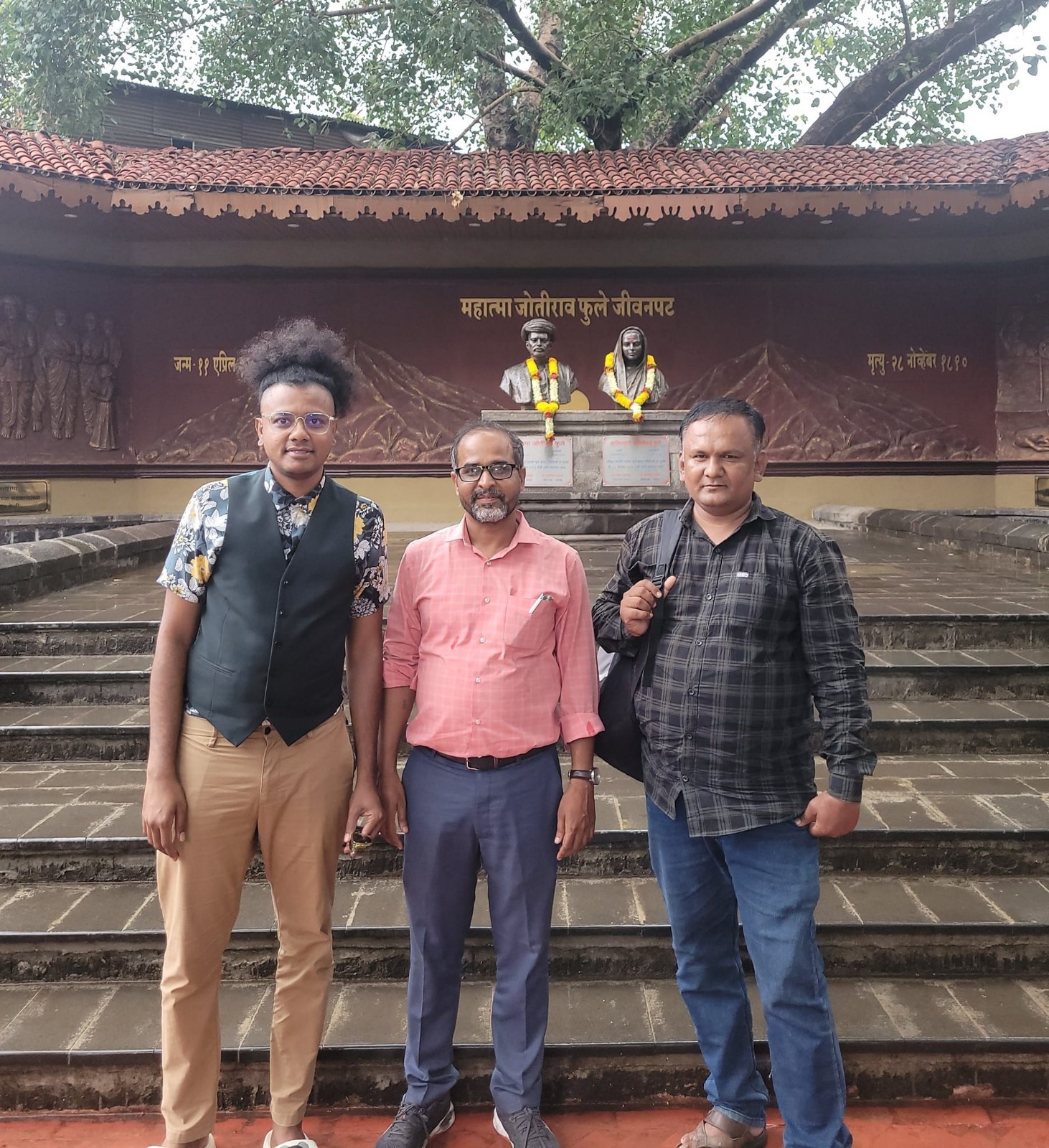 Sarfaraz Ahmad (extreme right) with his collegaues
Sarfaraz Ahmad (extreme right) with his collegaues
Central to his vision is also the role of Sufism. “The deeper the connection of Indian Muslims — especially Deccani Muslims — with Sufi traditions, the more rooted and integrated they become, both as Indians and as Muslims,” he says.
Sarfaraz’s vision isn’t just theoretical. Near Solapur, he has launched an ambitious educational project. This year, he is opening a language school offering instruction in five languages alongside a modern English-medium curriculum. The school will also provide training in music, the arts, and leadership.
On the same campus, several research centers are being established, including the Asian Center for Quranic Studies, Language Studies Institute, and the Gaziuddin Academy for Deccan Studies. A publishing house and a training center are already operational. His long-term dream? To establish an Asian Minorities University — a deemed university dedicated to minority education and research.
Yet, despite his grand vision, the road ahead is fraught with challenges. Much of the work is self-funded, often requiring personal sacrifices. Sarfaraz frequently travels across Maharashtra to raise public donations. Financial constraints remain a constant hurdle.
Inspired by the House of Wisdom (Dar al-Hikmah) of Baghdad, Sarfaraz is writing a book on the subject. Thinkers like Ibn Khaldun, Iqbal, Maulana Wahiduddin Khan, and Javed Ahmad Ghamidi are among his inspirations.
ALSO READ: Sakib Gore: Visionary on a mission of restoring sight and changing lives
Sarfaraz Ahmad represents a new generation of Muslim historians who are not only reviving cultural consciousness but also helping bridge the gap between communities. Through rigorous scholarship and grassroots activism, he is crafting a new narrative — one of empowerment, coexistence, and intellectual revival.
